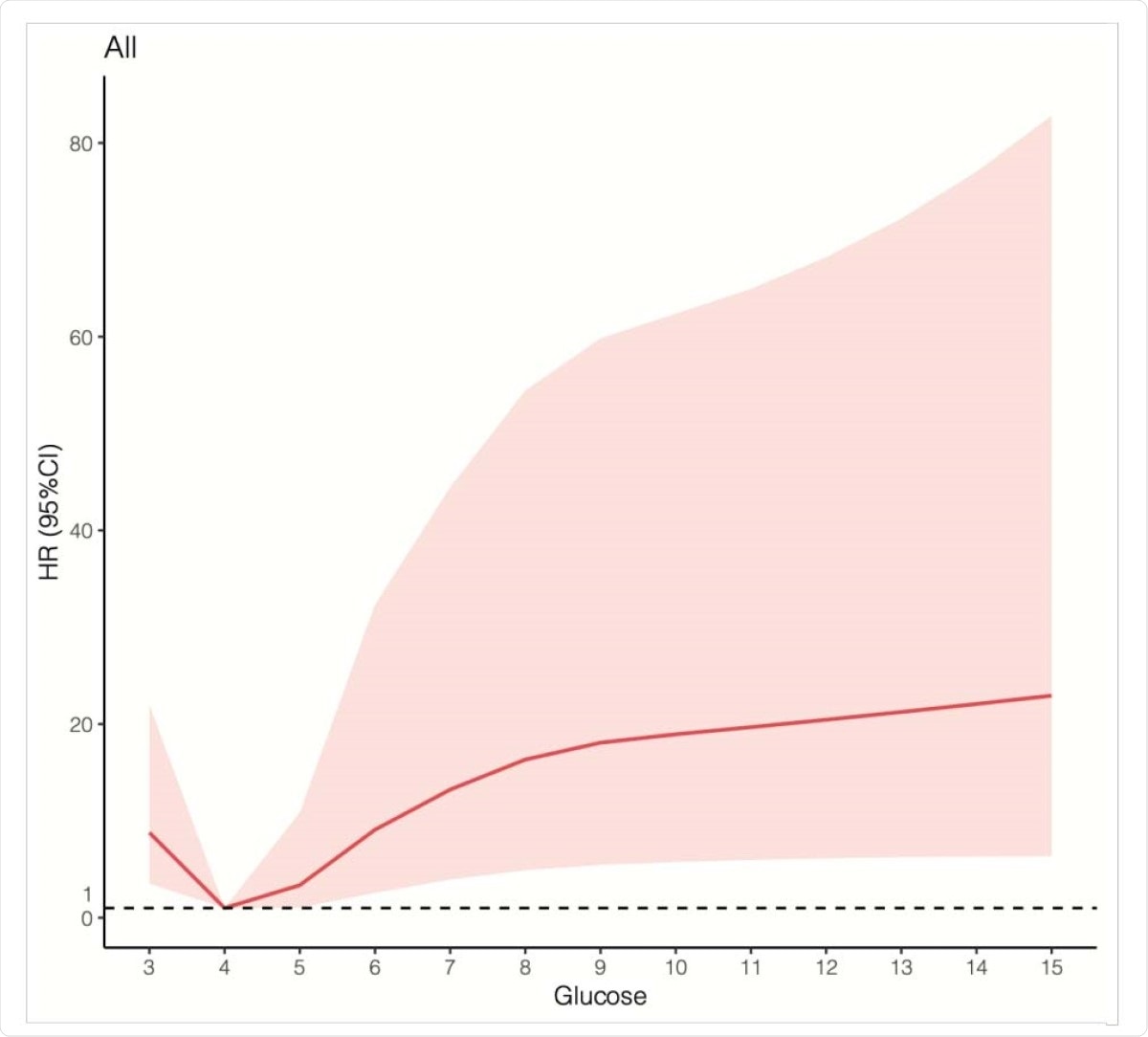Amid the coronavirus disease 2019 (COVID-19) pandemic, certain groups are observed to be at a higher risk of developing severe illness. These include older adults, those who are immunocompromised, and those with underlying health conditions, such as diabetes, hypertension, kidney disease, obesity, and heart problems.
One of the conditions that have been linked to an increased risk of COVID-19-related death is diabetes, a condition where there are high glucose levels in the body.

 *Important notice: medRxiv publishes preliminary scientific reports that are not peer-reviewed and, therefore, should not be regarded as conclusive, guide clinical practice/health-related behavior, or treated as established information.
*Important notice: medRxiv publishes preliminary scientific reports that are not peer-reviewed and, therefore, should not be regarded as conclusive, guide clinical practice/health-related behavior, or treated as established information.
Researchers at Xijing Hospital, Fourth Military Medical University, Xi’an, China, found that diabetes and on-admission glucose levels may increase the risk of COVID-19 mortality.
Diabetes and COVID-19
COVID-19, caused by the severe acute respiratory syndrome coronavirus 2 (SARS-CoV-2), continues to spread worldwide, with the number of confirmed cases reaching nearly 100 million.
Though lower than previous coronavirus outbreaks, COVID-19 has a mortality rate of around 1-5 percent. Most of the deaths reported have been among older adults and those with comorbidities.
Previous reports showed that diabetes had a hazard ratio of 2:3 for mortality. Also, in China, the Chinese Center for Disease Control and Prevention reported that among more than 72,000 patients with COVID-19, those with diabetes had a mortality rate of 7.3 percent, compared with that of 2.3 percent in the general infected population.
Aside from COVID-19, people with diabetes are also at a higher risk for other infections. Past studies have shown that glucose levels are associated with an increased risk of being admitted to hospital for infections in general, including respiratory tract infections.
Meanwhile, previous reports have shown that diabetes is one of the most common comorbidities in COVID-19 patients.
COVID-19 patients with diabetes may have a poor prognosis, evidenced by the fact that the incidence of diabetes was two-fold higher in ICU/severe cases than in their non-ICU/severe counterparts,” the team explained.
The study
The study, published on the pre-print medRxiv* server, investigated 2,877 patients, who were admitted to the Huo Shen Shen Hospital, dedicated solely to the treatment of COVID-19 in Wuhan City, the original epicenter of the coronavirus pandemic back in December 2019.
Overall, the study found that having on-admission blood glucose was associated with subsequent mortality.
To arrive at the study findings, the team investigated the association of diabetes, admission glucose, and anti-diabetic medications with COVID-19 mortality or death.
The researchers found that of the hospitalized COVID-19 patients, 39 died in hospital and 387 had a history of diabetes. Compared with 40 patients who survived, patients that passed away were older and had a higher prevalence of comorbidities like hypertension, diabetes, previous surgery, and myocardial angina or chest pain.

Association between glucose and hazard ratio of mortality in an 33 adjusted cubic spline in 34 patients with COVID-19.
Moreover, those who died had a higher respiratory rate and were more likely to experience difficulty breathing.
Overall, the researchers noted that diabetes was independently tied to increased mortality. They recommend that regular glucose monitoring can reduce the risk of developing severe symptoms.
Diabetes and on-admission glucose (per mmol/L≥4mmol/L) are associated with increased mortality in patients with COVID-19. These data support that blood glucose should be properly controlled for possibly better survival outcome in patients with COVID-19,” the team concluded.

 *Important notice: medRxiv publishes preliminary scientific reports that are not peer-reviewed and, therefore, should not be regarded as conclusive, guide clinical practice/health-related behavior, or treated as established information.
*Important notice: medRxiv publishes preliminary scientific reports that are not peer-reviewed and, therefore, should not be regarded as conclusive, guide clinical practice/health-related behavior, or treated as established information.
Source:
Journal reference: